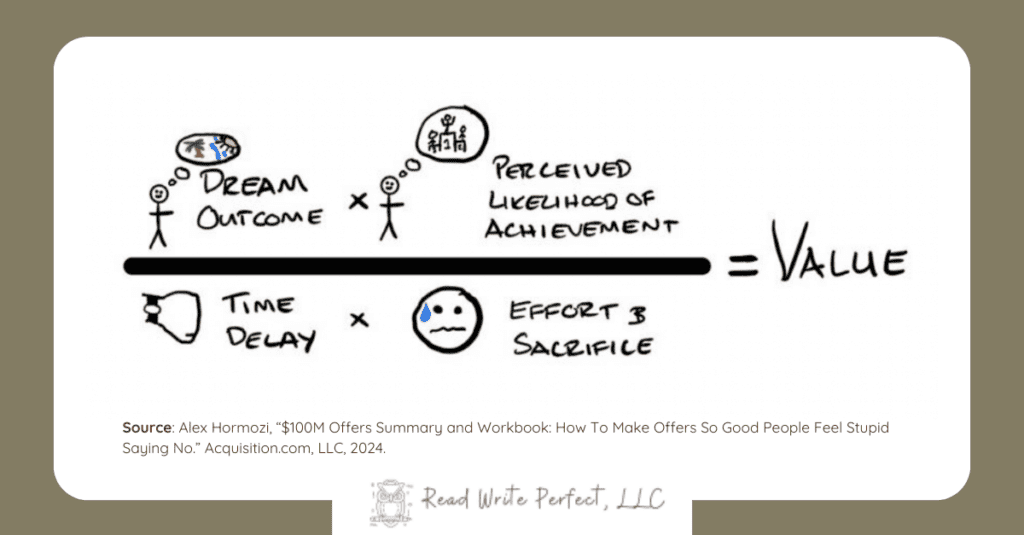
If you read my newsletter regularly (and you should, if I say so myself – my students tell me it’s pretty awesome), you’ll know I’m a big fan of support systems. Whether it’s apps and tools to make life easier, processes we put in place to optimize work, or people we rely on when we get into a pickle, my mantra is consistently the same – when you need help, go get it.
However, is help always as helpful as we think? Something my business coach shared with me recently (in the context of delivering good service) got me thinking about this. It’s a marketing concept called the value equation.
The value equation in marketing is: Value = Benefits – Price (and Hassle). You can see an awesome visualization of this equation in the image above (borrowed with thanks from Alex Hormozi’s book, $100M Offers).
It’s that last bit that’s important. Every support has a cost – whether it is in time, money, or effort. The true value of that support has to factor in those costs.
See, here’s the problem. When we need help, and then we put something in place that should help, we feel relief and gratitude. We can then get emotionally attached to that support system, making us reluctant to stop using it even when it stops working for us. We focus on the benefits only, and completely forget that we are paying a cost. (Also, finding a new support often feels like much more work than simply muddling on with what we’ve got).
Here are a few examples:
In each of these examples, once the cost (time spent learning software, negative emotions, expense and trips to the store) is factored in, the value (faster coding, emotional support, time saved going to the store) has actually been negated.
So, this is a reminder that a support is only a support if it genuinely offers value even after the costs have been identified and weighed.
Before you start using a new support, take five minutes to assess – what are the costs that weigh against the benefits?
If you are already using a support and still struggling, do the same exercise. Is the reason you are still struggling that the support is really too costly to be effective?

